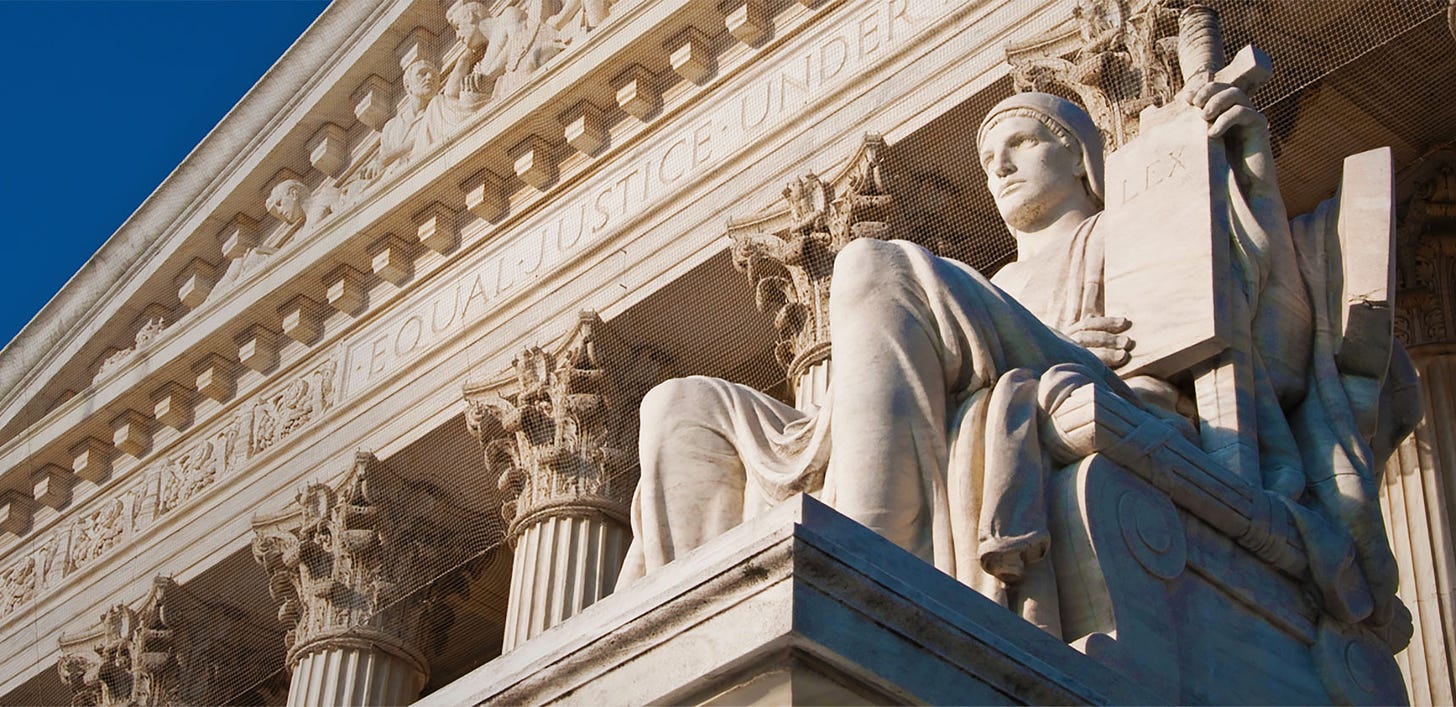Supreme Court Ruling Fuels Fears of Police Overreach Amidst Crime Drop and Increased Funding
A recent Supreme Court ruling1 allowing law enforcement to seize property without a preliminary hearing has ignited a firestorm of controversy, sparking fears of police overreach and abuse of power. This decision comes at a time when violent crime rates are falling2, yet police funding is skyrocketing3, raising questions about the true motives behind the expansion of law enforcement powers.
Imagine having your life savings snatched at an airport, or worse, your home confiscated – all without ever being charged with a crime. It sounds like a dystopian nightmare, but it's the chilling reality of civil asset forfeiture, a practice that allows police to confiscate property even if the owner is not charged with a crime, has long been criticized for disproportionately targeting low-income individuals and communities of color4.
Critics argue that the allure of "policing for profit" has led to overzealous seizures, disproportionately targeting those least able to fight back.
Cases abound of innocent people ensnared in this legal web. A Philadelphia family lost their home over a son's alleged $20 drug deal. A man's life savings vanished into the pockets of authorities due to mere suspicion.
The Supreme Court's ruling further solidifies this practice, fueling concerns that law enforcement agencies are incentivized to seize property for financial gain rather than public safety.
The ruling has also drawn attention to the growing trend of police violence against protesters exercising their First Amendment rights. Recent incidents involving excessive force against demonstrators opposing government policies have raised alarms about the increasing militarization of police and their willingness to suppress dissent.
President Biden's announcement of a $37 billion investment in law enforcement, adding 100,000 officers to the streets, has further intensified the debate. While the administration argues that this move will enhance public safety, critics contend that it will only exacerbate existing issues of police misconduct and racial bias.
Critics raise valid concerns about the potential negative consequences of increased funding, particularly in communities of color. They argue that it can lead to over-policing, racial profiling, and the criminalization of minor offenses, disproportionately affecting people of color.
Moreover, the availability of military surplus equipment, often offered to police departments at a fraction of the cost, further incentivizes the adoption of a more militaristic approach. This creates a feedback loop where increased funding enables the acquisition of military gear, which in turn normalizes its use and perpetuates a cycle of escalation.
"This is a dangerous moment for civil liberties in America," warns Jay Stanley, a senior policy analyst at the American Civil Liberties Union5. "The combination of expanded police powers, increased funding, and a track record of violence against protesters paints a troubling picture of a society where law enforcement is becoming increasingly unaccountable."
The growing chorus of voices calling for police reform and accountability has gained momentum in recent years, fueled by high-profile cases of police brutality and the Black Lives Matter movement. While the Supreme Court's ruling and the increase in police funding represent significant setbacks, advocates for reform remain hopeful that continued pressure can lead to meaningful change.
As the nation grapples with these issues, the debate over the role of police in society is likely to continue. The challenge lies in finding a balance between ensuring public safety and protecting individual rights, a balance that is becoming increasingly elusive in an era of expanded police powers and heightened tensions.
Supreme Court Declines to Set New Asset Forfeiture Standard: In Culley v. Marshall, the Supreme Court addressed the issue of whether a preliminary hearing is required before law enforcement can retain seized property in civil forfeiture cases. The Court held that the Due Process Clause of the Fourteenth Amendment requires a timely forfeiture hearing but does not mandate a separate preliminary hearing to determine if the property can be retained.
Due Process Considerations: The Court's decision focused on the balance between the government's interest in efficient law enforcement and the individual's property rights. The Court reasoned that a timely forfeiture hearing, where the burden of proof is on the government to establish probable cause for forfeiture, provides sufficient protection for individuals' due process rights.
Precedent: The Court relied on its previous decisions in United States v. Von Neumann and United States v. $8,850 to support its holding. These cases established that a prompt post-seizure hearing, rather than a preliminary hearing, satisfies the requirements of due process in civil forfeiture cases.
Majority Opinion: Justice Kavanaugh, writing for the majority, emphasized that requiring a separate preliminary hearing would impose an unnecessary burden on law enforcement and potentially delay the resolution of civil forfeiture cases. The majority also noted that existing legal remedies, such as the ability to challenge seizures in court, provide adequate safeguards for individuals whose property is seized.
Dissenting Opinion: Justice Sotomayor, joined by Justices Kagan and Jackson, dissented. They argued that a preliminary hearing is essential to ensure that seizures are based on probable cause and to prevent the government from holding property indefinitely without justification. The dissent expressed concerns that the majority's decision could lead to abuses of civil forfeiture and undermine individuals' property rights.
FBI Crime Data Explorer: https://cde.ucr.cjis.gov/LATEST
Biden-Harris Administration Announces $37 Billion in Funding for Safer Communities: https://www.doi.gov/pressreleases/biden-harris-administration-announces-37-million-investing-america-agenda-clean
Institute for Justice: Policing for Profit: The Abuse of Civil Asset Forfeiture: https://ij.org/report/policing-for-profit-2/
ACLU: Jay Stanley: https://www.aclu.org/bio/jay-stanley




